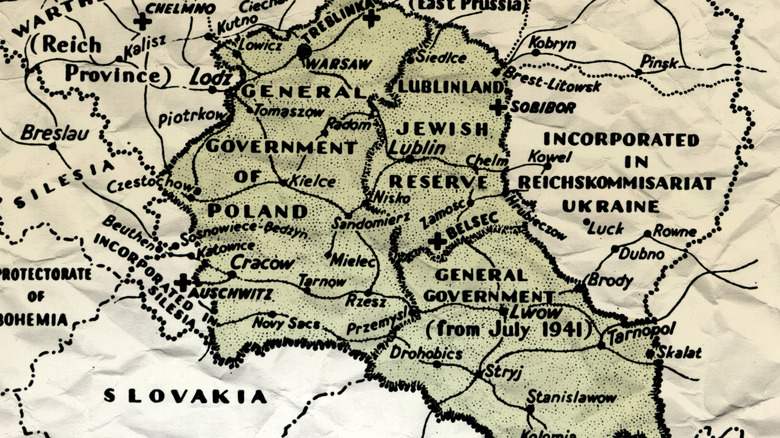How A Polish Nurse Hid Jewish People In The Same House As A Nazi Officer
In the seven decades since World War II, heroic stories have emerged. These stories reveal how the best of society can come out of tragedies marked by the worst of society. As the Nazi regime targeted Jews, the disabled, gay men, and Roma people all across Europe, many went into hiding. Anne Frank and her family are well-known examples of this due to "The Diary of Anne Frank," published after the war. Jan and Miep Gies were among those who helped the Frank family and others survive in hiding until police raided their hideout. Miep saved Anne's writing after her capture, which led to her diary's publication.
There are other remarkable stories of people helping those from oppressed groups hide from Nazi supporters or escape the areas under their control. From helping people hide to smuggling them out, these people were brave enough to risk their own safety to do so.
Nazis invaded Poland in 1939
History explains that under Adolf Hitler, the German Nazi army invaded Poland in 1939. The Nazis targeted railways and communication lines along with troops equipped with machinery that was more advanced than that of the Poles. They quickly set up concentration camps to get rid of anyone who opposed them.
The Poles did not readily accept these new leaders. Irene Gut Opdyke was no exception. She joined the Polish army as a nurse, but Russian forces captured her and sent her back to Poland via prisoner exchange. She began working in a kitchen for German soldiers in Tarnopol. Jews worked at the nearby laundry room, and Gut Opdyke knew of the Nazi's plans to rid the town of Jews. She hid six Jews in a wagon and took them to a forest to escape. Then after German Major Eduard Rügemer asked Gut Opdyke to live at his home as a housekeeper, she secretly brought 12 Jews with her and hid them in the major's cellar and attic (per All That's Interesting).
Irene Gut Opdyke's story became a Broadway Play
Unfortunately, Major Eduard Rügemer discovered the 12 Jews nine months later. He promised to keep them a secret, but only if Irene Gut Opdyke agreed to be his mistress. "I knew there were 12 lives depending on me," she explained. However, Soviet troops soon reached Tarnopol. Gut Opdyke and the 12 Jews escaped Rügemer's villa. One of the 12 was pregnant and gave birth after their escape. "That was my payment for whatever hell I went through," Gut Opdyke said (per All That's Interesting).
Gut Opdyke's heroic story lives on even in the 21st century. In 2009, the play "Irena's Vow" hit Broadway and ran for 105 shows. Her daughter Jeannie Opdyke Smith accepted the Polish Medal of Honor in 2008 and the Courage to Care award from the Anti-Defamation League in 2009 on her late mother's behalf. When asked how her mother was able to display such courage, she stated, "The short simple answer is this: faith, forgiveness, and love!"


